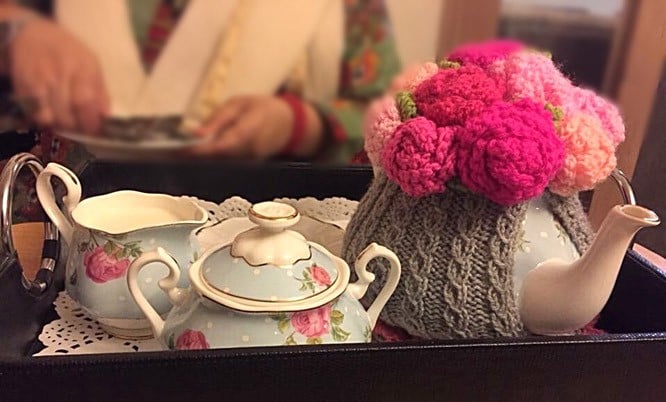
What is a nice cup of tea really, and who gets to gauge the level of its niceness?

Independence Day is almost upon us. On the said day, we will get to see most of our fellow countrymen behaving rather more oddly than usual -- a source of great amusement (or annoyance?) to many, depending upon one’s mood on that particular day.
For Independence Day inspires different things in different hearts. However, in most ‘patriotic’ hearts, it shall undoubtedly inspire the consumption of at least a few cups of tea (chai), for it’s not just a beverage that we indulge in whenever we want to celebrate something; tea is a cause for celebration itself.
Nothing unites Pakistanis like a nice cup of tea -- and a game of cricket, if you may -- although they may disagree on what ‘nice’ truly means, like they would invariably disagree on various other elucidations. But that’s beside the point here. In a nutshell, the ritual of drinking tea transcends all boundaries, defined or blurred. Why tea is not our national drink already is something that is beyond my understanding, for if there is anything that the whole nation swears by -- an extremely rare occasion -- it is the divinity of this beverage, offered in various exquisite shades of brown all over the country.
Don’t get me wrong. In our almost blind love for tea, we haven’t really forgotten the significance of coffee, another beverage that has continually tried to make its place in our hearts, and has only been greeted with encouragement. But for some inexplicable reason, coffee has still remained unable to leave an everlasting impression on most of us. Something to do with first love, perhaps?
It seems that chai is adamant on marking its territory as well; what with all the wonderful local truck hotel style tea places that have lately sprung up all around the country -- think Chai Kaddah and Sarak Pe Karak in Lahore; not to forget, the lovely Girls At Dhabas that calls for women to occupy public spaces. If you ask me, coffee does not quite stand a chance here.
Anyone who knows me knows my undying affinity for Lewis Carroll’s delightfully absurd Alice’s Adventures in Wonderland, one scene in particular actually: the Mad Hatter’s tea party. In my opinion, no discourse on tea can ever be complete without a mention of that wonderfully crazy party. In fact, if there is anything in this singularly bizarre text that has captured readers’ and illustrators’ imaginations alike, it is the mad tea party. Take this specific exchange for instance; one that has always been a longtime personal favourite:
"Take some more tea," the March Hare said to Alice, very earnestly.
"I’ve had nothing yet," Alice replied in an offended tone: "so I can’t take more."
"You mean you can’t take less," said the Hatter: "it’s very easy to take more than nothing."
I’ve often wondered what the root cause of our fascination with tea might be, and I have never really reached an agreeable conclusion. Barge into any house in Pakistan and you will be offered some tea; with biscuits and nimko, if lucky. Just walk in to your grandparents’ house and their first question will likely be, "Would you like a nice cup of tea?" in an obvious attempt at bridging the communication gap.
So, what is a nice cup of tea really, and who gets to gauge the level of its niceness? It is a subject that has been open for debate since times immemorial. George Orwell’s famous 1947 essay, ‘A Nice Cup of Tea,’ comes to mind in which he concludes: "… I maintain that one strong cup of tea is better than twenty weak ones." A fact many would like to respectfully disagree with in our country.
Another one of Orwell’s points in his legendary essay remains particularly relevant, however: "Tea is one of the mainstays of civilisation." And I wholeheartedly agree. For where there’s tea, there’s life and there’s hope for things to get better, eventually.
They say that our current relationship with tea has its roots in colonialism; though it seems that somewhere along the way, it very quietly morphed into an easily accessible coddle in a mug -- a preferably large mug. But would we prefer it any other way? I think not!